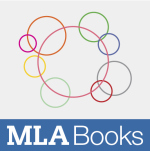 I am happy to announce that I am part of an amazing, innovative, and thoughtful project called Digital Pedagogy in the Humanities: Concepts, Models, and Experiments. Described as “a book in new form,” the collection will be created, edited, peer reviewed, published, and circulated online. I was invited to write the keyword “queer” and to gather and curate a list of resources, projects, ideas, and artifacts that exemplified queer digital pedagogy. Below are the official announcements of the project, the primary editors, and a working list of the keywords with a handful of “live” drafts (including mine).
I am happy to announce that I am part of an amazing, innovative, and thoughtful project called Digital Pedagogy in the Humanities: Concepts, Models, and Experiments. Described as “a book in new form,” the collection will be created, edited, peer reviewed, published, and circulated online. I was invited to write the keyword “queer” and to gather and curate a list of resources, projects, ideas, and artifacts that exemplified queer digital pedagogy. Below are the official announcements of the project, the primary editors, and a working list of the keywords with a handful of “live” drafts (including mine).
Announcing DIGITAL PEDAGOGY IN THE HUMANITIES: CONCEPTS, MODELS, AND EXPERIMENTS
In conjunction with the Modern Language Association, we are happy to announce Digital Pedagogy in the Humanities: Concepts, Models, and Experiments, an open-access, curated collection of downloadable, reusable, and remixable pedagogical resources for humanities scholars interested in the intersections of digital technologies with teaching and learning. Taken as a whole, this collection will document the richly-textured culture of teaching and learning that responds to new digital learning environments, research tools, and socio-cultural contexts, ultimately defining the heterogeneous nature of digital pedagogy.
Digital Pedagogy in the Humanities is a book in a new form. It will consist of approximately 50 keywords that articulate humanities pedagogy with digital humanities methods, new media studies, computational research, networked environments, and digital culture. Each keyword will have a curator who will briefly introduce a particular term in the context of teaching and learning and then provide ten pedagogical artifacts, such as syllabi, prompts, exercises, lesson plans, and student work drawn from actual courses, classrooms, and projects across the humanities. These artifacts will be annotated, attributed with metadata, and accompanied by lists of related materials for further reading and future reference. After going through an open peer review process, all keyword entries will be published under Creative Commons licenses to encourage circulation, editing, and repurposing by other practitioners.
In short, Digital Pedagogy in the Humanities will share the everyday stuff of humanities teaching and learning, curated by instructors who are well-versed in the practice of digital pedagogy.
As we move forward, we will update this GitHub repository with keyword drafts, important announcements, new contributors and keywords, and details for presentations about the project at university and college campuses across North America.
For now, please follow Digital Pedagogy in the Humanities on Twitter through the hashtag #curateteaching and visit our news page for updates.
List of Keywords for DIGITAL PEDAGOGY IN THE HUMANITIES: CONCEPTS, MODELS, AND EXPERIMENTS
A curated collection of downloadable, reusable, and remixable pedagogical resources currently under contract with the Modern Language Association
Hashtag for news and updates: #curateteaching
GENERAL EDITORS
- Rebecca Frost Davis, St. Edward’s University (rebeccafrostdavis@gmail.com)
- Matthew K. Gold, City Tech & Graduate Center, City University of New York (mgold@gc.cuny.edu)
- Katherine D. Harris, San José State University (dr.katherine.harris@gmail.com)
- Jentery Sayers, University of Victoria (jentery@uvic.ca)
CURRENT KEYWORDS
- Annotation
- Archive
- Assessment
- Attention
- Audio
- Blogging
- Classroom
- Coding
- Collaboration
- Community-Based
- Composition
- Curation
- Design
- Disability
- Failure
- Fieldwork
- Gaming
- Gender
- Hacking
- History
- Hybrid
- Information
- Interface
- Makerspace
- Multimodal
- Open
- Peer Review
- Play
- Praxis
- Professionalization
- Project Management
- Prototyping
- Public
- Queer
- Race
- Remix
- Rhetoric
- Sexuality
- Storytelling
- Text Analysis
- Video
- Work
Many thanks to Jentery Sayers, Rebecca Frost Davis, Matthew Gold, and Katherine Harris for the invitation to and inspiration for a fantastic and fun opportunity and publication.